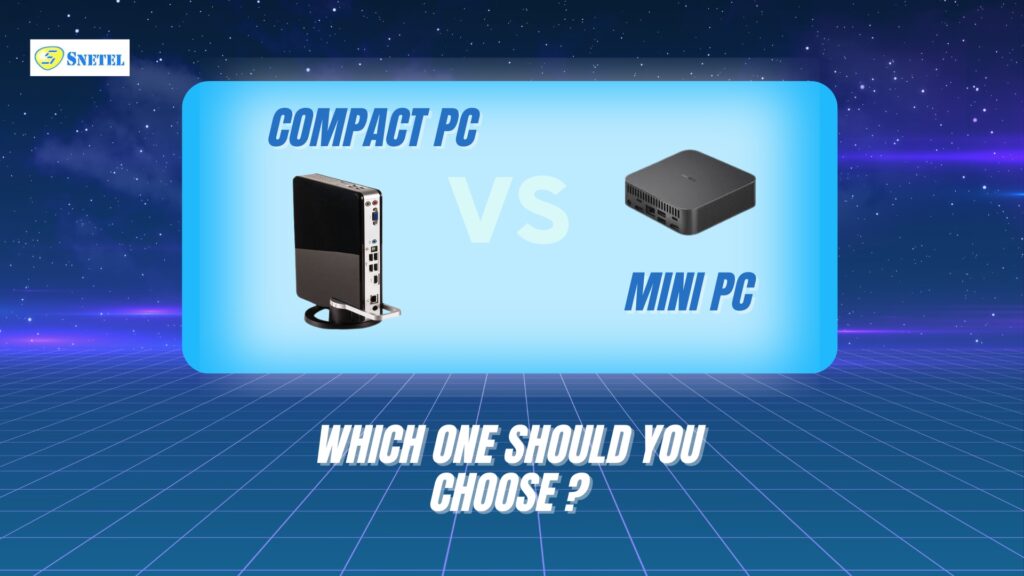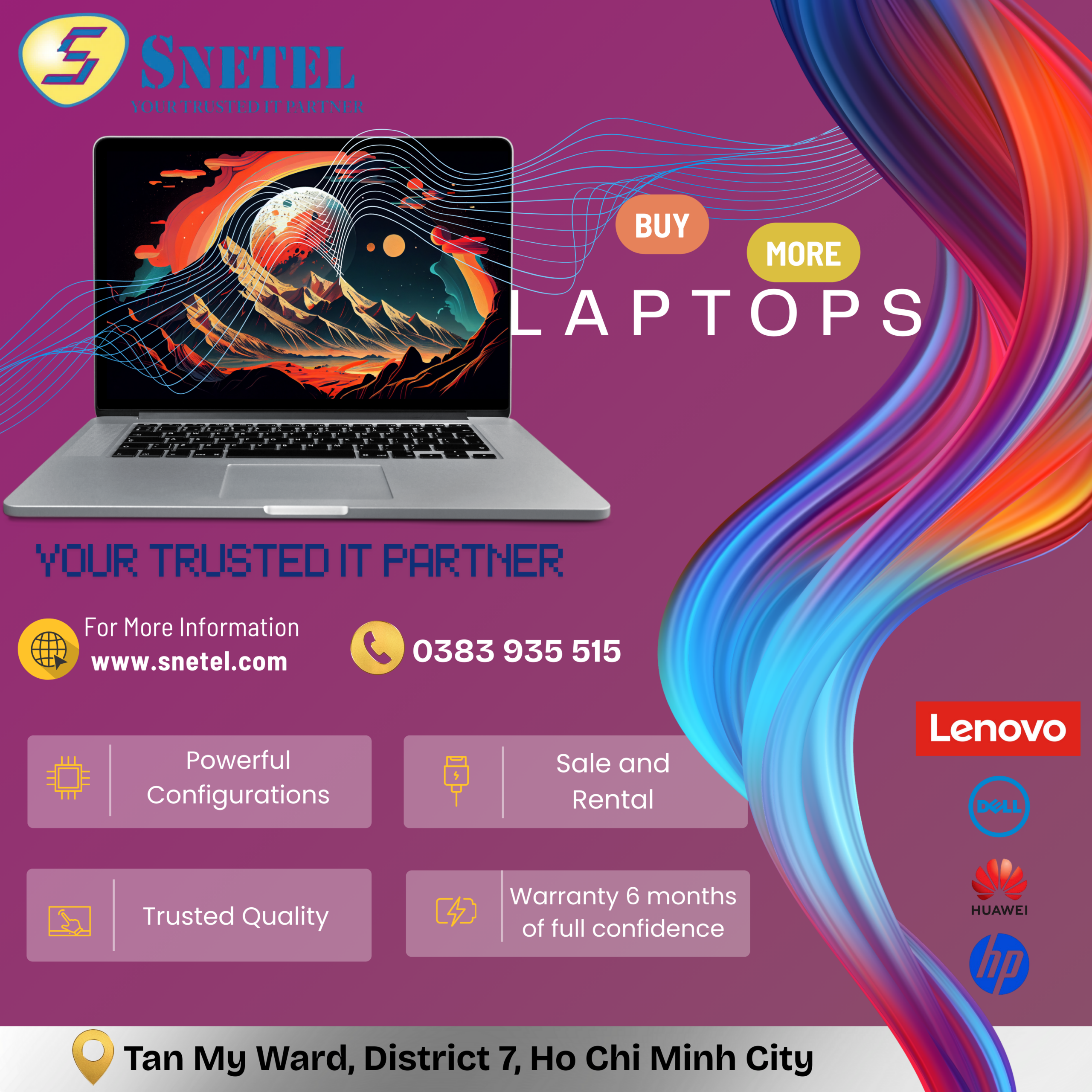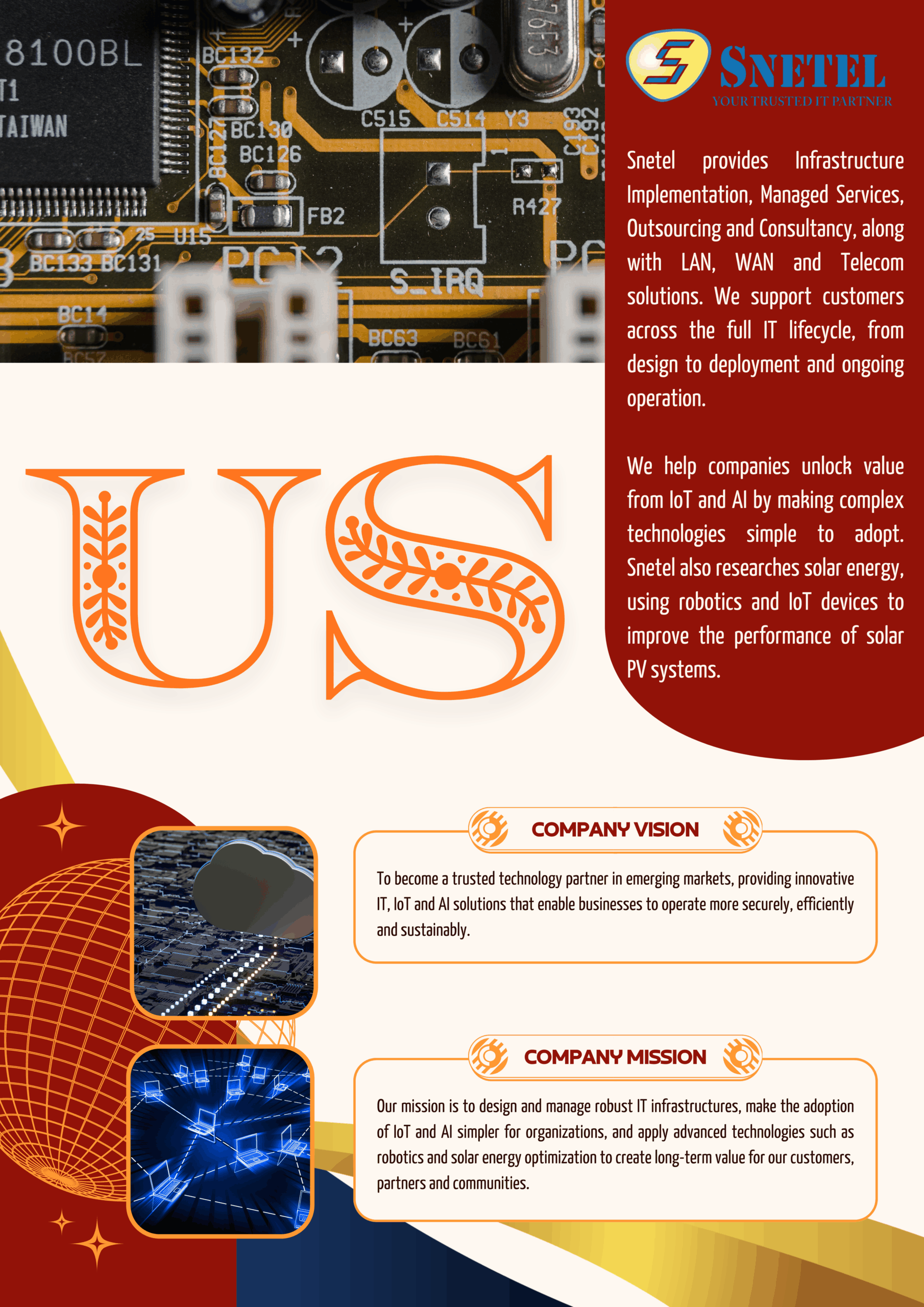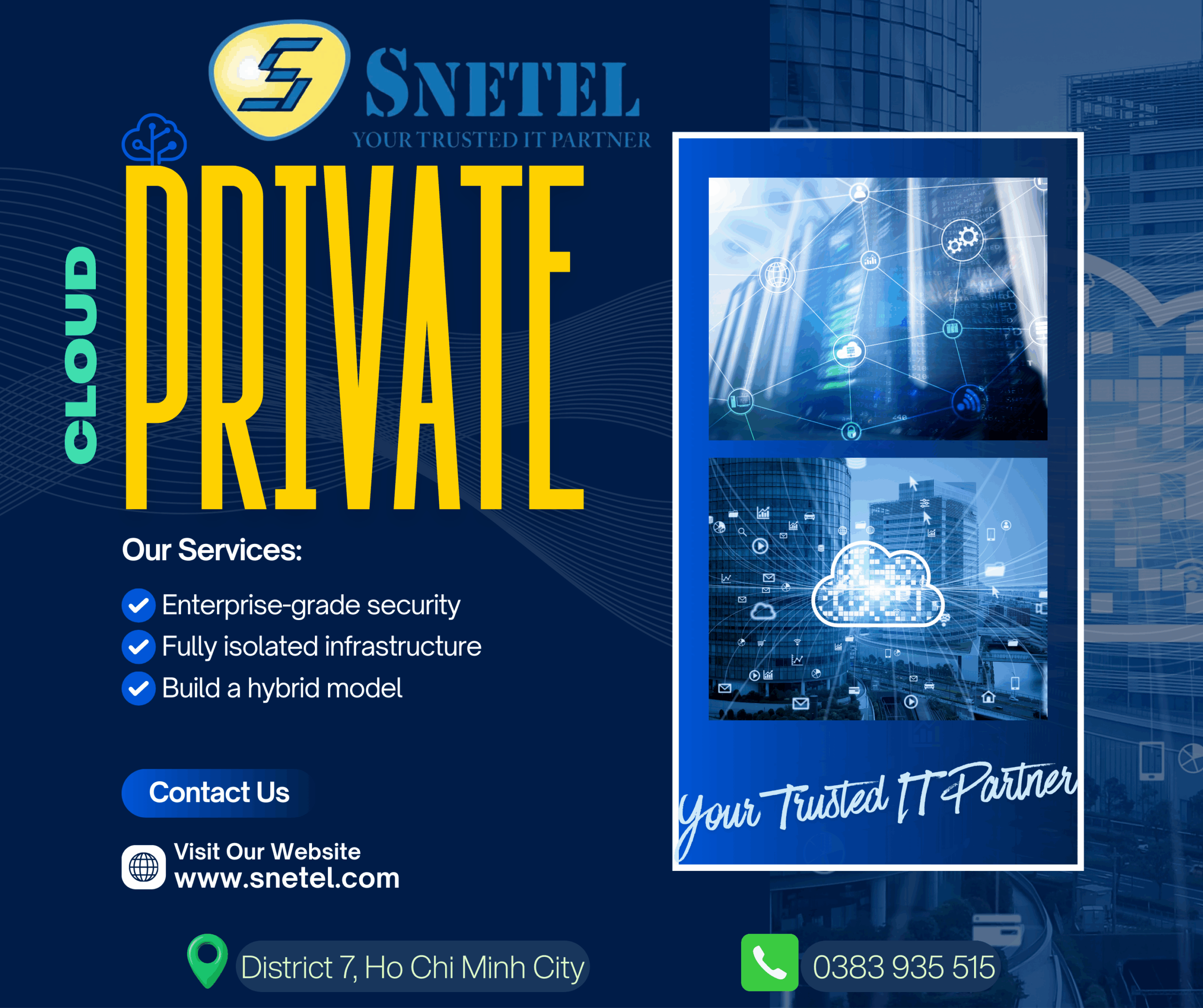When businesses or individuals look for a compact computing solution, the two most commonly mentioned names are Compact PC and Mini PC. But are they the same? And which one is the right choice for your needs?
Let Snetel help you explore the differences and make a smart decision!

1. Size and design
Mini PC: Features an ultra-compact design, roughly the size of a palmSuitable for limited spaces such as bedrooms, study desks, or mobile workspaces.
- Applications: study, personal entertainment, light office tasks.
- Advantages: easy to carry, energy-efficient, sleek design.
Compact PC: Slightly larger but still space-optimized. Robust build with enhanced cooling systems and easy hardware upgrades.
- Applications: Enterprise environments, production, kiosks, monitoring systems.
- Advantages: Stable performance, expandable configuration, high efficiency.
2. Performance and Upgradability
Mini PC: is usually equipped with a moderate configuration: energy-saving U-series CPU, 4-8GB RAM, low-capacity SSD.
- Disadvantages: few connection ports, difficult to upgrade hardware.
- Suitable for: Document processing, web browsing, video playbaDocumentonlin
Compact PC: supports more powerful CPUs (Intel Core i5/i7/i9, AMD Ryzen), large RAM capacity, dual SSD or HDD storage, and diverse I/O ports.
- Easy to upgrade: replace RAM, expand hard drive, change GPU according to needs.
- Suitable for: programming, data analysis, multitasking, specialized software.
3. Durability and Continuous Operation
Mini PC: Suited for intermittent use, not designed for 24/7 operation.
- Risks: Overheating in prolonged high-temperature environments.
Compact PC: Designed to run stably and durably for a long time:
- Ideal for POS systems, retail chain management, mini servers, industrial computers.
- Features: Active cooling, premium components, easy maintenance.
| Criteria | Mini PC | Compact PC |
| Size | Ultra-compact, highly portable | Slightly larger, robust and industrial-ready |
| Performance | Basic, suited for lightweight tasks | High, capable of running demanding applications |
| Hardware Upgrades | Limited | Flexible, supports multiple upgrades |
| Cooling System | Passive, limited for long operations | Active, designed for continuous operation |
| Durability | Personal use, occasional workloads | Business-grade, 24/7 durability |
| Use Cases | Home office, student, personal media | Business, retail POS, industrial systems |
| Price Range | Budget-friendly | Higher investment with long-term value |
Final Recommendation
- For home users & light tasks → Mini PC (affordable, ultra-portable).
- For businesses & demanding workloads → Compact PC (powerful, upgradable, durable).
Need expert advice? Contact Snetel for a tailored solution!


